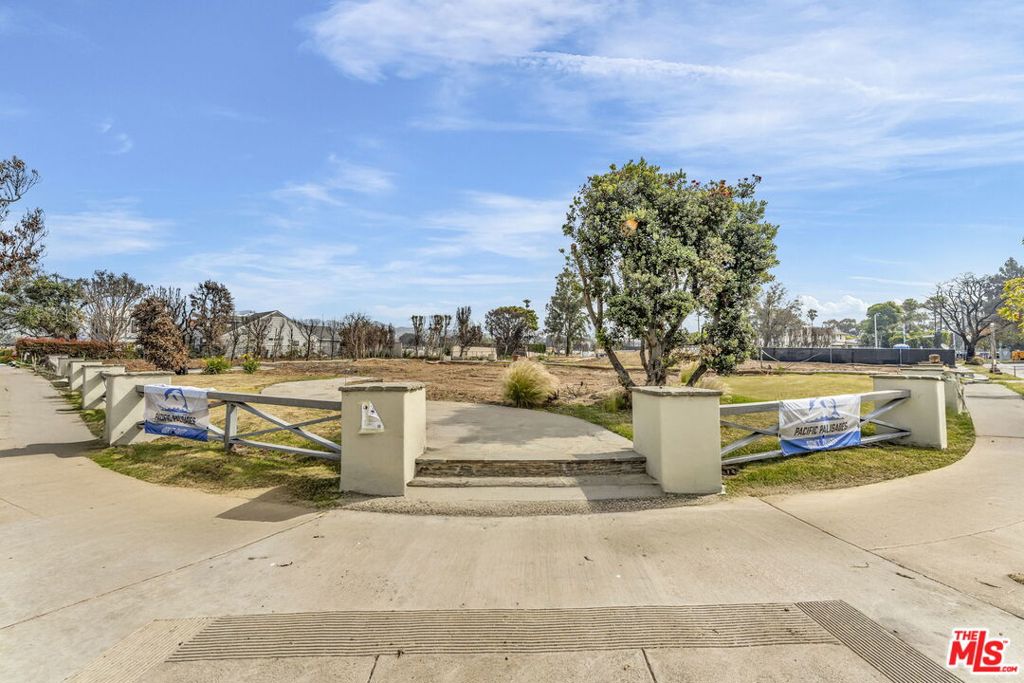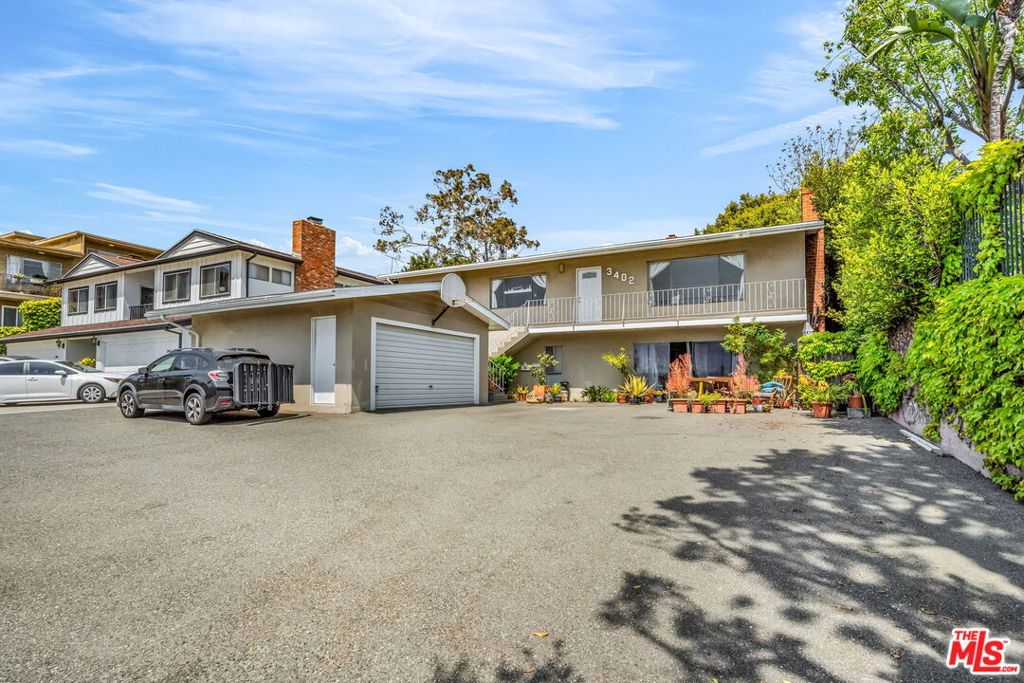Determining your home's value is helpful for a multitude of reasons. In addition to helping you make informed decisions regarding potential improvements or establishing a fair and attractive price for buyers, an accurate valuation provides a benchmark for unique circumstances, such as valuing an asset ahead of probate proceedings. You'll also avoid the painful and costly missteps of overpricing or underselling the property.
With valuation being such a critical step in buying and selling Los Angeles real estate, many individuals turn to free online estimators such as those from Zillow or Redfin to help determine the worth of their Los Angeles-area home. Should you do the same?
If you have been contemplating selling for some time or require the valuation of an asset for purposes of probate, trust, inheritance, bankruptcy, or receivership, let's explore the automated online home valuations of Zillow and Redfin, whether they are helpful or harmful towards your home selling goals, and if there's a better alternative you should consider.
Understanding Estimates from Zillow and Redfin
Zillow and Redfin are two of the real estate industry's most prominent online real estate platforms. As real estate aggregators, both have proven relatively successful at facilitating the buying and selling of residential real estate across a number of home buyer segments. Among each site's most popular tools are their respective real estate estimators—Zillow's Zestimate and the Redfin Estimate.
While both algorithm-based tools perform the same essential function—determining the market value of a specific home—they go about processing their estimates in slightly different ways.
Zillow Zestimate
Zillow incorporates a wide range of data to come up with what they term a "Zestimate," a seemingly reliable figure for your home's market value. Nationally, Zillow claims a median error rate of 2.4% for on-market or active listing homes and a median error rate of 7.49% for off-market homes.
Those numbers slightly decrease when looking at Zestimate's performance in Los Angeles. The median error rate across the Los Angeles and Orange County region is 2.16% for those active listings, and a median error rate is 6.38% for off-market homes.
Less encouraging is Zillow's accuracy in getting their estimates within 5% of the sales price. Nationally, for active listings, it's only 77%; off-market, that number is 35.31%. In the Los Angeles - Orange County metro area, it's 79.23% and 40.85%, respectively.
Part of the issue with the Zestimate is that it operates with considerable limitations. The algorithm doesn't have the capacity to consider the unique characteristics of a luxury property; the fine details that often distinguish luxury homes — custom-designed interiors, high-end appliances, and luxury amenities — generally remain unaccounted for.
Moreover, Zillow's estimates can lag behind the fast-evolving market dynamics, providing a value that might not mirror the current market situation. For example, the numbers listed above are from April 2023, or nearly six months from the writing of this post. Sellers relying solely on these figures might find themselves grossly undervalued or overpricing their properties and doing so with terribly out-of-date information. In either case, it can be detrimental to a sale.
Redfin Estimate
Redfin claims its home value estimate tool is the most accurate online platform—specifically for current "on-market" listings. Their proprietary algorithm pulls together more than 500 data points within a given market to aid in determining an individual property's market value.
A primary difference between Zillow and Redfin is the latter employs its own team of in-house real estate agents should a seller want to further discuss their estimate. For its part, Zillow can connect you with an agent, none of which are in-house.
Redfin's national data reflects a median error rate of 2.09% for its set of active listing homes and a median error rate of 6.37% for off-market homes.
Again, diving into California's market specifics, Redfin splits its local numbers up via county. L.A. County's median error rate for active listings is 2.36% and 6.08% for off-market homes. Orange County's median error rate is 1.98% for active listings and 5.96% for those off-market.
Looking at Redfin estimates within 5% of the sales price, for active listings nationally, it's only 77.34%; off-market is 41.82%. At the county level, L.A. is 75.67% for active listings and 42.63% for off-market estimates. Orange County numbers are 82.41% and 43.30%, respectively.
Similar to Zillow, Redfin employs an almost purely data-driven approach to property valuation. Redfin, though, tends to offer slightly more conservative estimates. Redfin data updates far more frequently, as well—weekly, to be precise—as the above numbers are six months more recent than Zillow's reporting.
Helpful or Harmful? Are Zillow or Redfin Estimates Accurate?
The short answer is no. While both estimators may not be harmful in the truest sense of the word, they are not particularly helpful if accuracy is your goal.
When accounting for its 500 different data points, Redfin's calculations are grounded in a more rigid set of criteria. While this translates into more reliable outputs and fewer large-scale swings in reporting, it still omits the nuanced understanding of luxury real estate—properties that frequently come adorned with bespoke attributes that can significantly enhance a property's value. But it's not just high-end homes that are impacted.
Zillow's and Redfin's estimation process might involve meticulous assimilation of available data, but they often falter in capturing the complete characterization of a home, potentially leading to a less-than-accurate valuation that might not serve the best interests of the sellers in the luxury market.
For one thing, property condition is rarely accounted for in Zillow or Redfin estimates, the sole exception being a home that is new construction. Along similar lines, neither platform can appropriately interpret nuanced values, such as if a home is a waterfront property or boasts favorable views.
The most significant drawback to trusting the Zillow or Redfin estimates stems from the source of their calculations—the data itself. Both algorithms rely heavily on user-provided data points, so their information is only as good as the input. Even if it's accurate, the information may prove incomplete and unreliable in producing a valid account of a property's estimated market value.
While both Zillow and Redfin's estimators can produce a rough ballpark value for a given property, there's always a high risk of over- or undervaluing based on their numbers alone. A far more accurate method for valuing your Los Angeles area home exists, and compared to online estimators, it's just as cost-effective and far more accurate.
Comparative Market Analysis—The Gold Standard for Home Valuation
While algorithms are useful in numerous applications, they often bypass the nuances contributing to a property's actual market value. A Comparative Market Analysis (CMA), completed by a seasoned real estate professional, provides genuine insight and an in-depth understanding of a home's value in the Los Angeles residential real estate market.
The CMA is at the core of a real estate agent's toolkit as it is a powerful strategy that scrutinizes similar properties in the same locale, taking into consideration a vast array of aspects including, but not limited to, age, condition, size, and location, coupled with an analysis of the current market dynamics to provide a valuation that is both precise and reflective of the present market scenario.
Unlike algorithm-driven estimates, a CMA delves deep into the distinguishing attributes of a property, allowing for a valuation that truly mirrors its worth. It offers a rich perspective, considering the unique characteristics that define properties. For example, in the case of a luxury property, the CMA accounts for architectural nuances, quality of materials used in construction, the home's layout, the surrounding landscape, and, if applicable, the famous lineage of the property's prior ownership or as a work from a notable architect or designer.
Working closely with an agent ensures a valuation that is not just data-driven but also emotionally intelligent and resonates within the marketplace, unearthing the true potential of your property in the Los Angeles real estate market.
Connect with a Trusted Team of Experts
With expertise in general real estate probate, conservatorships, trusts, bankruptcy, and receiverships, and hundreds of satisfied clients, The CREM Group has the knowledge and experience to help guide you through the probate real estate process. The CREM Group's proven track record of success in dealing with these hyper-specific sales in the real estate markets of Los Angeles, Orange County, and the surrounding areas will ensure your probate experience is highly successful.



